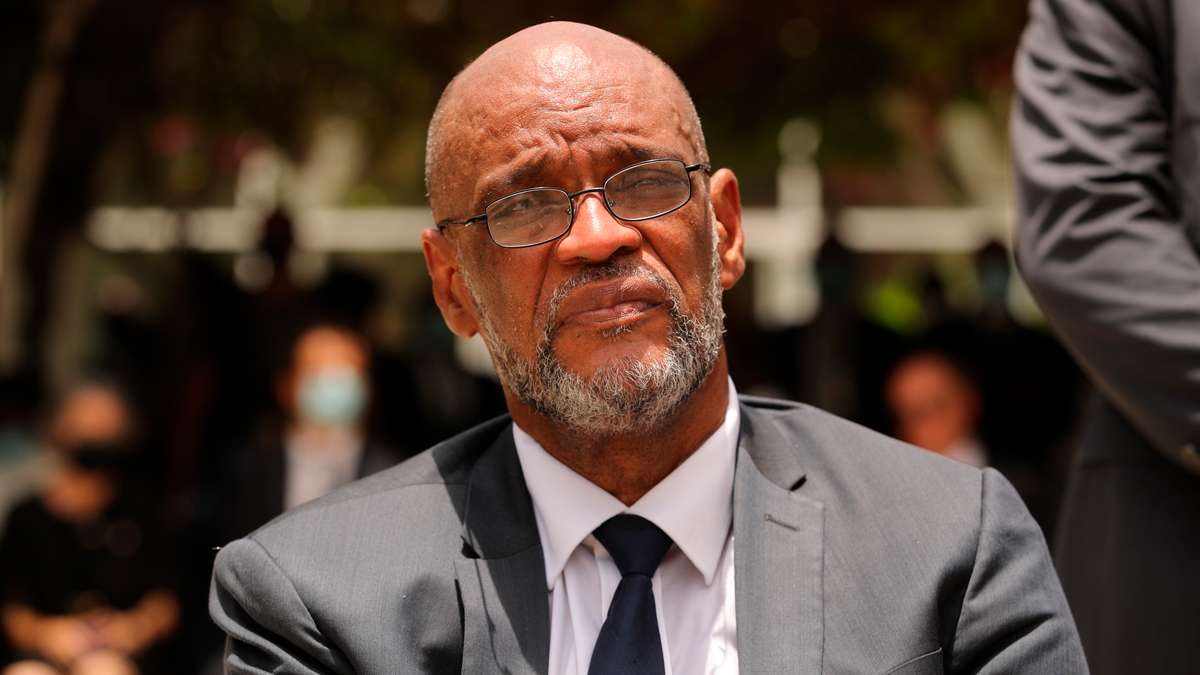Bouncing from politics to the big screen and back, Fred Thompson played many roles well and those who knew him say the folksy former U.S. senator won't soon be forgotten for his impact on American life and the arts. He died Sunday at age 73.
A Tennessee-trained lawyer, prosecutor, hard-driving Senate counsel at the Watergate hearings, movie and TV actor and even a fleeting presidential hopeful, Thompson commanded audiences with a booming voice, outsized charisma and a 6-foot-6 frame.
"Very few people can light up the room the way Fred Thompson did," said U.S. Sen. Lamar Alexander, R-Tenn. "He used his magic as a lawyer, actor, Watergate counsel, and United States senator to become one of our country's most principled and effective public servants."
Thompson, who appeared in feature films and television, including a role on the NBC drama series "Law & Order," died in Nashville after a recurrence of lymphoma, his family said.
Thompson appeared in at least 20 motion pictures. His credits include "In the Line of Fire," ''The Hunt for Red October," ''Die Hard II" and "Cape Fear." By the early 1990s, Thompson said he had become bored with his 10-year stint in Hollywood and wanted to go into public service. That's when he headed back to Nashville and embarked on a successful run for the Senate.
His rise to the Senate was atypical. He had never before held public office, but he overwhelmingly won a 1994 special election for Al Gore's old Senate seat after connecting with voters while crisscrossing Tennessee in a red pickup truck. In 1996, he easily won a six-year term.
His family said Sunday that Thompson had stood on his principles and common sense all his life, serving in the Senate was what he considered a privilege. "Fred was the same man on the floor of the Senate, the movie studio, or the town square of ... his home," the family statement added.
U.S. & World
During the Watergate hearings, Thompson was the questioner who elicited White House aide Alexander Butterfield's stunning public revelation that then-President Richard Nixon had a secret taping system in the White House. Butterfield had notified committee investigators days earlier that the tapes existed, however, and Thompson had warned the White House in advance that it would be revealed.
Thompson had accepted the Watergate counsel's job thinking at first it would be a career detour of a few months.
"My only reaction to the case had been a vague feeling that every political campaign has a few crackpots who cause embarrassment," he said in his 1975 Watergate memoir "At that Point in Time."
In the book, Thompson painted himself as a dogged investigator, willing to follow the investigation wherever it led. He described a gift that then Republican Sen. Howard Baker's staff gave him one Christmas in the era: "two brass spherical objects mounted on a rectangular platform with the inscription, 'You've got 'em, kid, you've got 'em.'"
Gore, the former vice president, lauded Thompson on Sunday for his tenacity during Watergate: "At a moment of history's choosing, Fred's extraordinary integrity while working with Senator Howard Baker on the Watergate Committee helped our nation find its way. I was deeply inspired by his matter-of-fact, no-nonsense moral courage in that crucible."
Thompson, a lawyer, shuttled between politics and acting much of his adult life. Once reckoned as a rising Senate star, he retired from that seat when his term expired in January 2003, a year after marrying Jeri Kehn, a political and media specialist.
Thompson once called the Senate a "remarkable place" but, like Hollywood, there was "frustration connected with it."
After his Senate years, Thompson returned to acting.
Billed as Fred Dalton Thompson, he joined "Law & Order." In the supporting role of District Attorney Arthur Branch, Thompson was seen weekly alongside stars including Sam Waterston and Alana de la Garza, as well as occasionally on spinoffs "Law & Order: Special Victims Unit" and "Law & Order: Criminal Intent."
But after that and other roles, politics again beckoned. Thompson announced in 2007 he would seek the Republican presidential nomination only to drop out in January 2008 after a poor early showing.
The son of a car salesman, Thompson was born in Sheffield, Alabama, and grew up in Lawrenceburg, Tennessee, where he was a star athlete. He was 17 when he married Sarah Lindsey. The couple divorced in 1985.
Thompson graduated in 1964 from Memphis State University — now the University of Memphis — and earned his law degree from Vanderbilt University in 1967.
Thompson went on to become a lawyer in Nashville. In 1969, he became an assistant U.S. attorney and then volunteered in 1972 to work on the re-election campaign of the former U.S. Sen. Baker of Tennessee. It was Baker who chose Thompson to be chief minority counsel on the committee investigating the Watergate scandal.
Afterward, Thompson returned to Tennessee and represented Marie Ragghianti, the head of the Tennessee Parole Board who was fired in 1977 after exposing a pardon-selling scheme.
Ragghianti won reinstatement and her case was made into a 1985 movie titled "Marie," based on the 1983 book "Marie: A True Story," by Peter Maas. The producers asked Thompson to play himself, and the role launched his acting career.
After retiring from acting and politics, Thompson hosted a conservative radio talk show between 2009 and 2011 and became a TV advertising pitchman for a reverse mortgage financial company.



